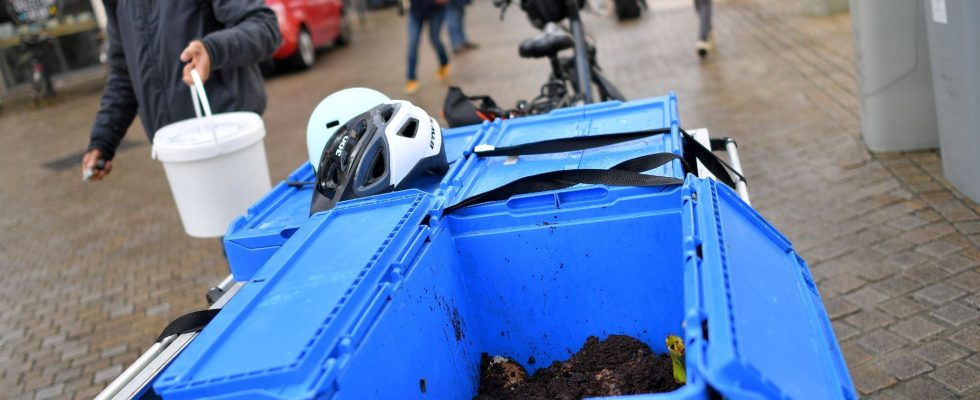New regulations, but few immediate effects. As of January 1, the management of organic waste is changing: it will no longer be allowed to throw food scraps, peelings, or green waste into household waste bins. The new directive, planned as part of the anti-waste law for a circular economy (Agec) passed at the beginning of 2020, should thus allow the generalization of sorting at source, separate collection and recovery of bio-waste.
“The primary challenge is to remove bio-waste from the landfill or the incinerator, because it contains a lot of water, and burning it does not make sense,” explains Vincent Coissard, head of the waste and waste sub-directorate. circular economy at the Ministry of Ecological Transition. According to Ademe, the ecological transition agency, 83 kilos of bio-waste are generated per year and per inhabitant in France, 50% of which could be easily captured instead of ending up in landfill or incinerated.
Habits that are difficult to establish
However, few municipalities are ready. The Ministry of Ecological Transition indicates that 27 million French people, or only 40% of the population, will have a solution available in 2024. Among them, 10 million local residents who will be able to request a compost bin at home, on a voluntary basis. . “Certain communities still have investments to make,” the ministry acknowledges.
The municipalities which manage to meet the deadline today are very often those which have been ahead for many years. In Lorient, for example, door-to-door collection of bio-waste has been operational since 2002 in the 25 municipalities of the conurbation. In Loir-et-Cher, the changeover took place from 2020 in the municipality of Lamotte-Beuvron, which chose voluntary contribution containers. The volumes of waste are then transformed into gas via a methanizer which also recovers sewage sludge, agricultural remains or even manure from an equestrian park. Enough to provide heat for the town’s buildings. According to Ademe, this solution has significant development potential in France.
However, in many parts of the territory, habits are still struggling to take hold due to several obstacles. Unlike inert waste, bio-waste has the particularity of degrading quickly, and therefore requires special attention and more regular collection. Concretely, each territory is free to define the organization that suits it best: separate door-to-door collection or at a voluntary drop-off point, offering individual composters for those who wish or setting up neighborhood composters or in foot of building.
Encourage municipalities and individuals
Often, these installations are slow to see the light of day in municipalities which, due to lack of obligation, have not launched the projects on time, or choose less expensive, but not very effective, options. “Many municipalities hide behind local composting, but it is a false solution. Surveys show that we cannot reach more than 30 to 40% of the population through this means,” underlines Edouard Van Heeswyck , regional director of Moulinot, a company specializing in the collection and recovery of food waste. According to Ademe, the additional cost for separate collection is 7 to 20 euros per person per year, a surplus which is added to the 100 euros per year that waste collection already represents.
Aware of their delay, the big cities are accelerating the movement. In Paris, 500 new bio-waste bins must be installed, but not before the end of next year. Since 2020, terminals existed in the capital but remained located near food markets. They must now be located “less than three minutes” on foot from the homes of “all Parisians”, according to the Town Hall. To help citizens take the plunge, professionals and associations are mainly calling for a strengthening of collection. “Today it is a real obstacle, solutions exist but in a piecemeal manner. They are not as optimized as passing a skip once or twice a week,” summarizes Edouard Van Heeswyck. There is therefore still a way to go to make this new law a real accelerator of the energy and ecological transition.
.
